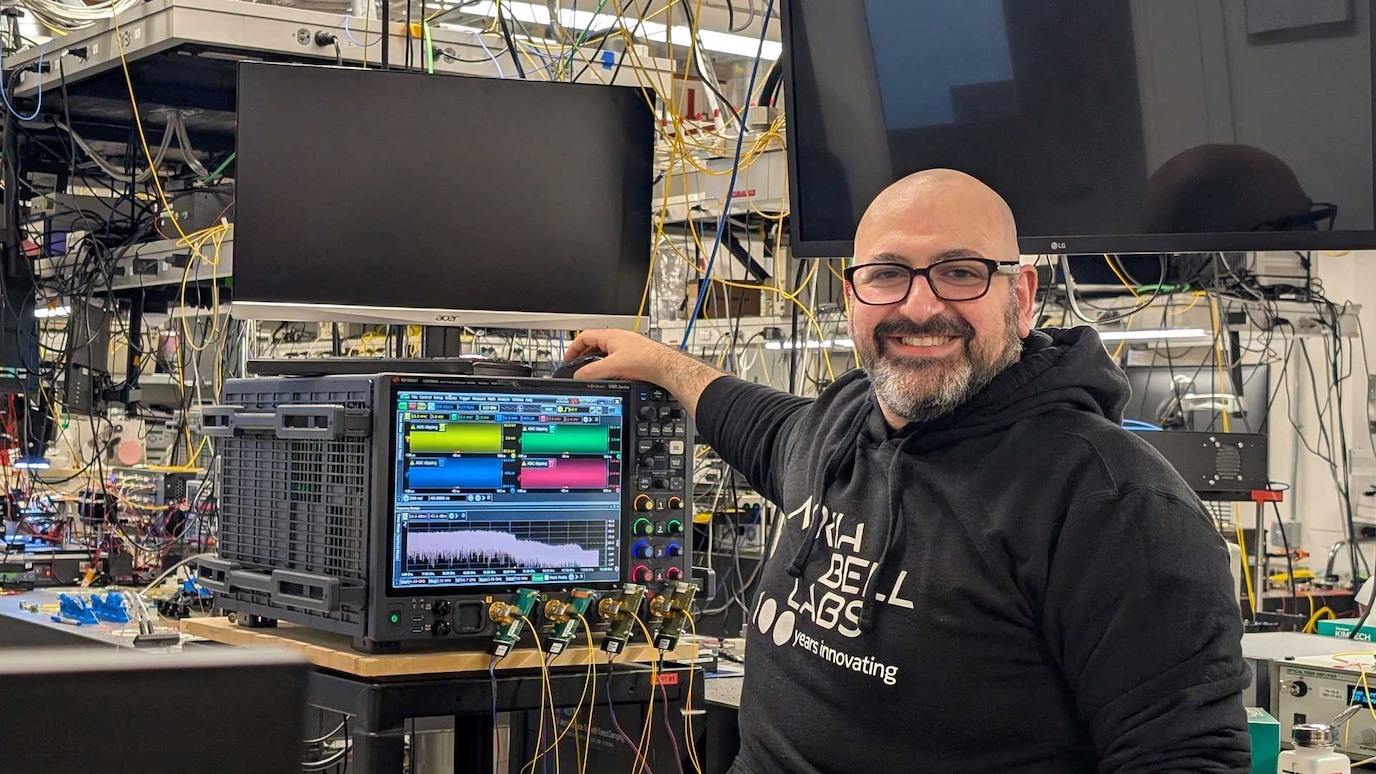Lab overview
Going from automation idea to software implementation requires multiple experts to collaborate, often taking months of lead-time. We need to make the creation of such custom software solutions faster, more collaborative, and fully “self-service”.
We therefore focus our research activities on drastically improving the developer experience of technical domain experts - with typically limited programming expertise – such that they can easily and rapidly create collaborative E2E data-driven applications.
To this end, we aim to accelerate and improve the programmability of data intensive services through intuitive pair programming assistants & interfaces, coupled with live programming principles & digital twins. We facilitate collaboration by developing novel multi-perspective programming paradigms for experts to seamlessly work together.
Our research
Objectives
Going from automation idea to software implementation requires multiple experts to collaborate, often taking months of lead-time. We need to make the creation of such custom software solutions faster, more collaborative, and fully “self-service”. We therefore focus our research activities on drastically improving the developer experience of technical domain experts - with typically limited programming expertise – such that they can easily and rapidly create collaborative E2E data-driven applications.
These challenges are especially important in data driven Industry4.0 (I4.0) applications, where developers and domain experts typically have the least overall and up to date programming skills, yet they are confronted with the most challenging operational environment. At the heart of the I4.0 transformation lies a distributed, heterogeneous, and highly dynamic environment that requires a deep integration across IT backend systems, the underlying Operational Technology (OT) management systems, as well as the physical environments (e.g., real-time systems, tight process control loops, low-level devices, etc.).
Our vision is to facilitate mass self-service customization and integration at minimal effort and cost across collaborative entities. To this end, we accelerate and improve the programmability of data intensive services through intuitive pair programming assistants and interfaces, coupled with live programming principles and digital twins. We facilitate collaboration by developing novel multi-perspective programming paradigms for experts to seamlessly work together.
Achievements
In the past, the Intuitive Software Creation team worked on various projects, ranging from AI coding tools to facilitate general purpose programming tasks to low-code / no-code (LCNC) frameworks for simplifying the creation of advanced I4.0 analytics applications:
- Contextual programming library commendation engine: Code compass is a recommendation service that we made publicly available, to recommend contextually relevant programming libraries for your software project, leveraging embeddings that we trained on large public code bases (Paper, code and service)
- Semantic code search tool: Codebook is an internal prototype tool we created to easily extract and store relevant code snippets from various sources. We make them easily searchable and customizable via a custom trained natural language search engine and stateless execution sandboxes (Paper & code).
- Natural-language guided programming service: Prior to Github Copilot, we created an internal code completion service called Cody with various IDE plugins to easily generate a few lines of Python code based on your existing code context and some natural language intent, based on a custom finetuned GPT2 model (Paper & Models).
- Semantic business process model completion service: We developed and validated a method for process autocompletion at design time, based on the semantic similarity of sub-processes, to recommend likely next elements in the workflow (Paper).
- Advanced query assistant framework: We developed an easily domain-customizable advanced query assistant to easily build high-level queries and automatically translate them into low level complex-event-processing pipelines. We explored various LCNC mechanisms, programming paradigms as well as interactive visual representations.
Active Projects
- Specialized AI Coding Assistants for custom vertical applications: We are currently developing a Smart Programming Assistants Workbench enabling domain experts themselves to create their own AI assistants for vertical applications, leveraging Large Language Models and other AI/ML techniques.
- Multi-perspective and collaborative software creation: We are enhancing and extending existing language workbenches to ease programmability across multiple perspectives and representations by creating a coherent experience across these perspectives. We are also investigating and refining novel multi-tier live programming paradigms to enable a live collaborative programming experience on top of a unified digital representation of your (industrial) enterprise environment.
Applications
Industries need to make service creation more agile and collaborative. We empower non-coder experts to program and configure such complex systems through AI assistants and collaborative multi-perspective service creation environments.
The potential applications are endless, ranging from easily customizing existing AI/ML modules and integrating them into novel I4.0 E2E applications, enabling automated on-the-fly configuration changes based on novel insights from multiple data streams, to easily integrating completely new functionalities and capabilities provided other stakeholders and parties into your business.
These applications span many different industries, from manufacturing & transportation to energy and the public sector, each of which are currently ongoing a massive transformation to be able to cope with the increasingly distributed, heterogeneous and dynamic nature of their environment. As each come with their own set of challenges, our solution should be very flexible and customizable as well.
Future research
Today, we're still only just scratching the surface when it comes to easy and agile service creation for verticals across multiple stakeholders. The underlying technologies & paradigms (e.g., LLMs, LCNC frameworks, etc.) today are still too immature, unreliable or too constrained for developing robust, reliable and highly dynamic vertical applications. Moreover, as part of the digital transformation, these vertical applications are now more-than-ever relying on increasingly specialized technical expertise and deep domain knowledge, all of which needs to be seamlessly brought together to fully realize the I4.0 vision.
In our future research, we want to help bridge this gap, by creating intuitive assistants and solid novel paradigms that will automatically learn to build up and exploit this in-depth domain knowledge, have learned to break down complex problems into manageable pieces, can quickly adopt to new situations and onboard new capabilities or domains, and provide robustness and transparency from the ground up. On top, we want to provide a unified collaborative experience where each expert can seamlessly & continuously contribute their domain expertise and skills in a coherent and safe manner, enabling our vision of unlocking profitable mass self-service customization and integration across multiple stakeholders & domains.
Team
APA style publications
- Theeten, B., Vandeputte, F., & Van Cutsem, T. (2019, May). Import2vec: Learning embeddings for software libraries. In 2019 IEEE/ACM 16th International Conference on Mining Software Repositories (MSR) (pp. 18-28). IEEE. (Paper, Code & Code Compass service)
- Heyman, G., & Van Cutsem, T. (2020). Neural code search revisited: Enhancing code snippet retrieval through natural language intent. (paper & code).
- Heyman, G., Huysegems, R., Justen, P., & Van Cutsem, T. (2021, October). Natural language-guided programming. In Proceedings of the 2021 ACM SIGPLAN International Symposium on New Ideas, New Paradigms, and Reflections on Programming and Software (pp. 39-55). (paper & models)
- Goldstein, M., & González-Álvarez, C. (2021). Augmenting modelers with semantic autocompletion of processes. In Business Process Management Forum: BPM Forum 2021, Rome, Italy, September 06–10, 2021, Proceedings 19 (pp. 20-36). Springer International Publishing. (paper)










